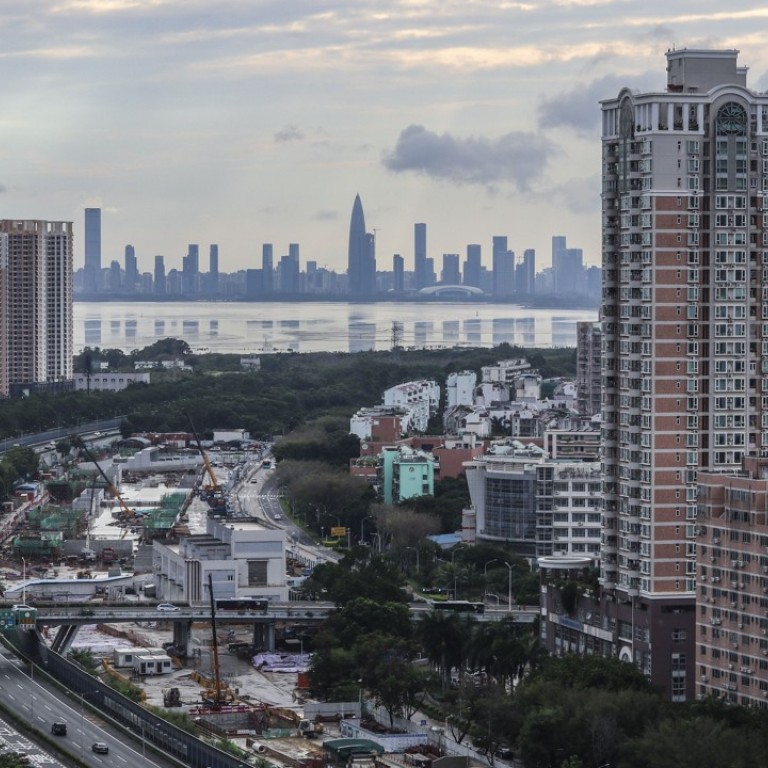
HSBC eyes Greater Bay Area’s 27 million people in China insurance push
The bank will open a new office in the southern city of Shenzhen as it targets a population in the planned integrated economic region greater than that of Australia
Global bank HSBC plans to set up an insurance office in the southern Chinese city of Shenzhen in October to complement one in nearby Guangzhou as it eyes a potential market of 27 million people in China’s planned “Greater Bay Area” economic region.
Bryce Johns, group of head of insurance for HSBC, said in an exclusive interview with the South China Morning Post that the new office would allow its mainland insurance joint venture to sell life, health and retirement products to a population greater than that of Australia.
“We are very keen on the development of the Greater Bay Area, which is an important region in mainland China,” Johns said. “The area includes Hong Kong, where HSBC has a very strong muscle and a wide network, while the other cities have huge populations which would provide a large scale market for us.”
The Greater Bay Area refers to the Chinese government's scheme to link Hong Kong and Macau with the southern cities of Guangzhou, Shenzhen, Zhuhai, Foshan, Zhongshan, Dongguan, Huizhou, Jiangmen and Zhaoqing into an integrated economic and business hub.

HSBC entered the mainland China insurance market in 2008 when it established HSBC Life Insurance Company, a 50-50 joint venture between HSBC Insurance (Asia) and Chinese insurance broker National Trust Ltd. It is headquartered in Shanghai and has offices in Beijing, Tianjin and Guangzhou. It sells via the bank network of HSBC and its subsidiary Hang Seng Bank.
Chinese authorities said in November they would allow foreign companies to own 51 per cent of foreign insurance joint ventures from 2020, with full foreign ownership by 2022. Johns said HSBC would review the new rules when details were available.
China’s insurance market is dominated by domestic players such as China Life and Ping An Insurance, and foreign insurers only have a market share of about 5.8 per cent, according to an EY report in 2015. Johns however is positive on the outlook.
“Mainland China will soon become the world’s largest insurance market. While foreign insurance companies may only have a market share of about 5 per cent, it is in a market with a rapid development, and this provides huge growth opportunities,” he said.
As well as a large number of high-net-worth Chinese who travel or work in international cities, there are also many expatriates working and living in the Greater Bay Area, the Yangtze River Delta and Beijing, which would be target clients for HSBC, Johns said. He added that the insurance venture would cross-sell services to small and medium-sized corporate clients of HSBC and Hang Seng Bank.
In Hong Kong, the company’s insurance unit will change its name on Wednesday to HSBC Life from HSBC Insurance, a move which Johns believes would help add a human touch.
“We want to position ourselves not just as a company that sells products but as a company that promises to serve our clients for life,” he said.
HSBC Life has wholly owned subsidiaries in Hong Kong, Singapore, Mexico, France and the UK as well as a 26 per cent owned joint venture in India. It also earns fees in Malaysia, the Philippines and other markets from selling products by German insurer Allianz.

